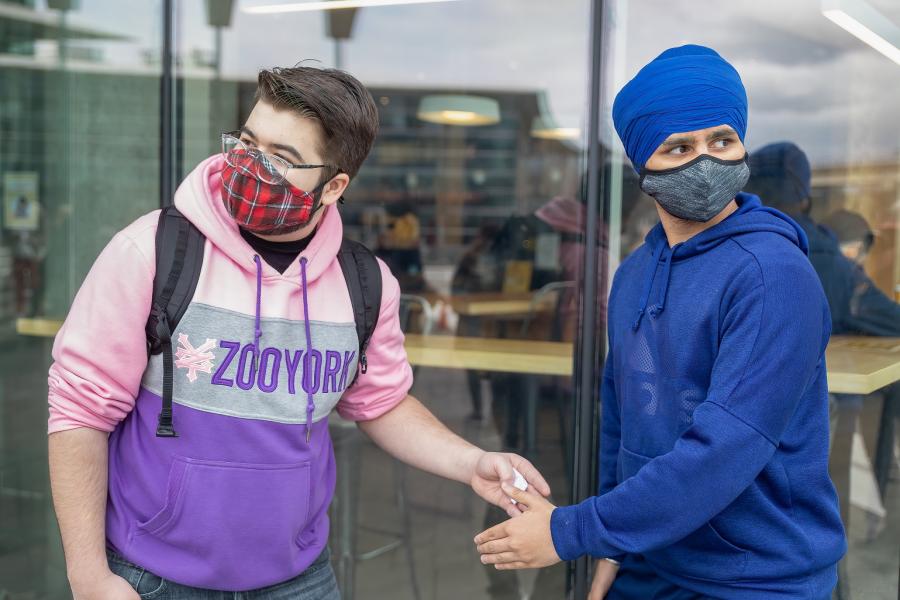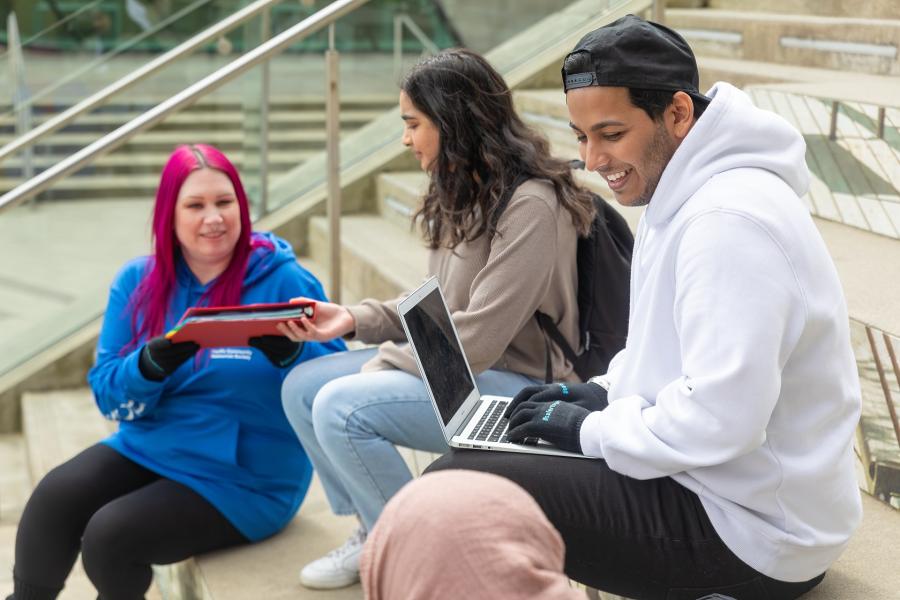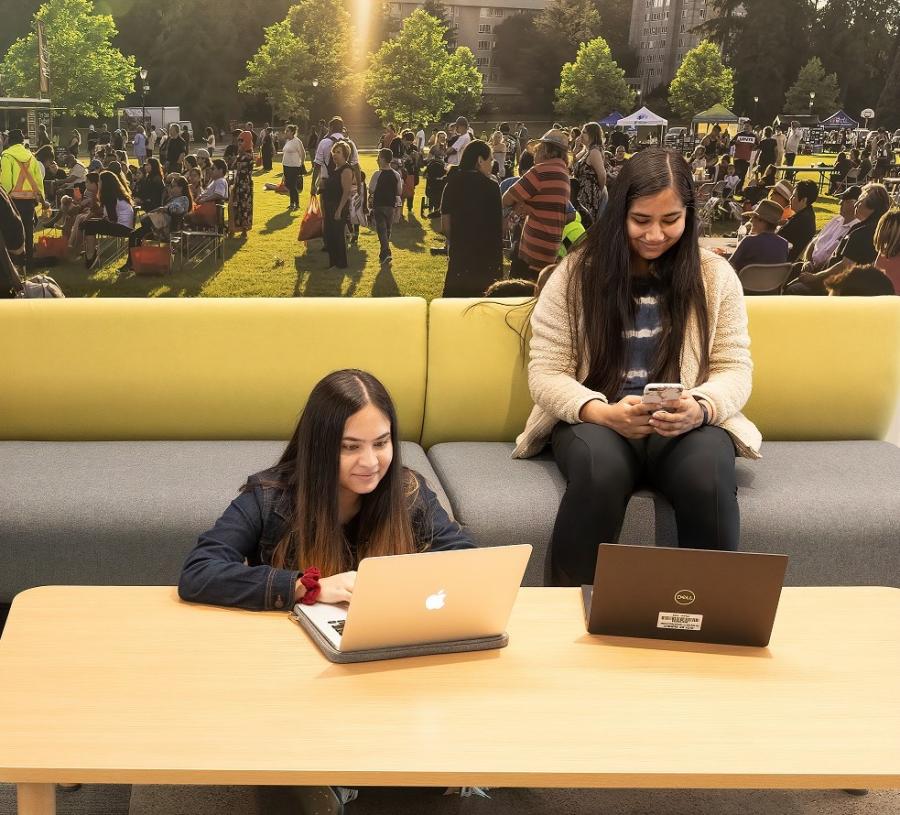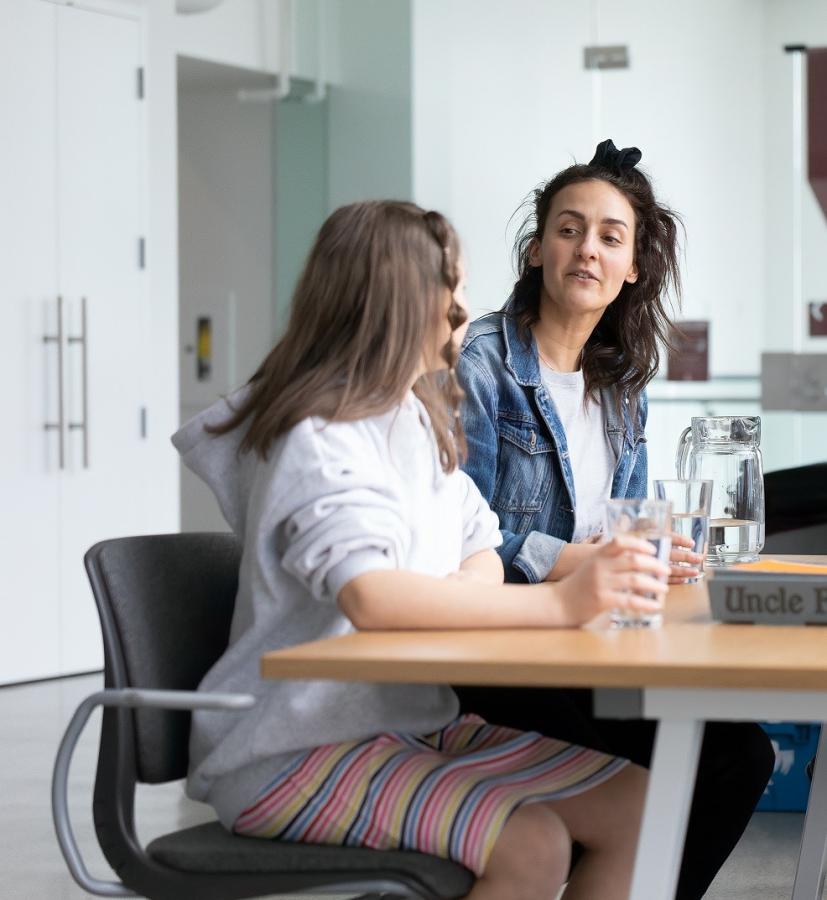Start the Conversation
Build a strong connection by starting the conversation with these tips.
Building a strong connection through meaningful conversations on tough topics is one of the most important and effective ways to protect children from gangs. However, even though both children and parents often want to discuss the same topics, they don’t know where to start.
Children want to be loved and heard without fear of judgment, comparison to others, or punishment. Successful conversations that don’t cause emotional harm, start from a safe and open place. When we go into conversations with an open mind and the goal of listening, children may be more willing to share.
Before starting a conversation:
-
Check your own biases and fears so you can actively listen to your child.
-
Accept and acknowledge your child’s feelings.
-
Talk about your own emotions and feelings so you can relate to them better.
-
Empower them with choices.
-
Do your research and learn more if you don’t know how to help.
-
Explore youth truth to learn more about tough topics.
Tough topics brought forward by Parents
Drugs and Alcohol
My son is starting high school, how can I have continuous conversations with him about drugs, alcohol and vaping without him feeling uncomfortable or come across as accusatory? Also, we don’t want him to feel like he needs to hide or feel ashamed. How can he be open about these conversations?
As a parent, caregiver or another supportive adult
Educate yourself and be relatable. Learn about the latest drugs and their side effects, this will help you start the conversation about drug use. Be relatable—put yourself in their shoes, think back to when you were a teenager and share relevant stories.
Show concern and listen. Express your feelings of concern and let them know you are worried about them. Remain calm and don't pass judgment.
Be patient. This is a tough conversation. Don't pressure or rush it.
Be open-minded. Ask your child open-ended questions that aren't directly related to them. For example, "what do you think about this news story or advertisement on drugs?." Remain calm and don't pass judgement.
Be proactive. Start the conversation early—before your child starts experimenting with drugs and alcohol.
Focus on strengths. Every child has unique strengths. Remind your child about their personal strengths and their ability to overcome this.
Talk to a professional if your child is using substances
If you’ve noticed your child is turning to substances for coping, it is important to connect them with professionals who can work with them on making healthy choices regarding substance use. Substance Use Liaisons are able to connect with any student in Surrey Schools and parents can notify the school they would like to make a referral or contact Safe Schools directly. Check out other resources available to your child and family.
Discussing the "Friends"
How do we know if my child has good friends and how can we learn more about the type of friends they have? How do I talk to them about negative influencers?
As a parent, caregiver or another supportive adult
Be open and non-judgmental. We can have judgements or biases about what children say and we let these judgements influence how we respond. Avoid judging your children on their actions and do not compare them to other children. It will make you more approachable and make your children feel like they could turn to you when they need support.
Listen and acknowledge feelings. Tell your child how you feel by using "I" statements and focus on your emotions. Show your concern through your feelings and be open to listening to how your child feels.
Get to know the friends. Youth are driven by the desire to be accepted among their peers and establish an identity for themselves among their peers. We encourage you to get to know your child's friends and their family. And learn more about risk factors to help identify any negative behaviours.
Welcome your child's friends. One way to get to know your child's friends is by inviting them over. Have conversations with them, learn more about their interests, and how your child met them.
Phone Usage & Social Media
My child spends a lot of time using their phone and not studying. How do they balance school work with their cellphone and internet usage? What can I do as a parent and how can I stop them from overconsuming?
As a parent, caregiver or another supportive adult
Establish clear boundaries. Set expectations and limits when your child receives a phone or starts using any social media sites. Be open to having a conversation with your child and agreeing on a set of expectations together. When the child is involved in the conversation and able to negotiate the terms, they are more likely to abide. Hold your child accountable to the rules by reviewing the expectations often.
Create a social contract. Find a social contract online and create one for your child's phone usage. Establish boundaries for screen time, social media apps, and where the phone can be used. Create a contract early when the child first receives the phone and before negative behaviours arise.
Be a role model. Children learn by modelling behaviours of their parents. Show your child how to have a healthy and positive relationship with their phone by modeling the behaviour.
Be open to learning. Learn more about the social media apps your child is using by having open and non-judgmental conversations. Do not jump to conclusions. Ask open-ended questions and be willing to actively listen.
Monitor activities. Check-in with your child regularly. Encourage children to use their phones in an open place where they can be monitored. Search your child's name using popular search engines and social media sites to check their activity.
Connect with a professional if want to learn more about setting boundaries.
The Surrey Anti-Gang Family Empowerment program provides low barrier counselling to young people and their families. A clinical counsellor can help parents and children build better communication and conflict resolution skills. Learn more about how to use "I" statements, how to listen, and compromise during decision making. If you need any additional support, connect with a clinical counsellor.
Sex & Intimate Relationships
I found messages between my child and another classmate. They had a video call and I am concerned about what they were talking about. How do I talk to my child about being in a relationship and physical intimacy?
As a parent, caregiver or another supportive adult
Talk about consent. Talk to your child about saying no and respecting your partner when they say no. Let your child know no one can consent to sexual activities while intoxicated or under the influence of drugs.
Educate yourself. Learn more about age-appropriate conversations for your child. And educate your child about healthy and unhealthy relationships. Young people are being influenced by social media, music, movies, and television, so it's important to create dialogue on what is seen in the media.
Be open-minded and listen. Make yourself more approachable by avoiding judgment towards your child. Don't jump to conclusions. Ask open-ended questions and be willing to actively listen.
Establish clear expectations. When your children grow older, it is important to set boundaries that will make them less likely to engage in risky behaviour. The goal is to set boundaries together so both the parent and child agree.
Be patient. This conversation is not easy so be patient. Look for organic opportunities to have this tough conversation ie. when watching movies, seeing advertisements, reading news stories, when someone in the family is pregnant, etc.
Connect with a professional if you are concerned about exploitation
Sexual exploitation is the sexual abuse of a child or youth, under the age of 18 years old, through the exchange of sexual acts or favours for drugs and alcohol, a place to stay, rides, clothing, food, money, and more. If you are concerned about your child being sexually exploited, connect with the Stop Exploiting Youth Team with PCRS.
It is never too early to start the conversation!
Gangs target children as young as 10 years old from a variety of demographic, geographic, and socio-economic environments so it is important to start the conversation as early as elementary school. The Book of Super was created to encourage parents to start the conversation early. It can help your 6 to 8 year-old child build confidence, learn more about your family’s cultural story, resolve conflicts, and identify a support network they can trust. While your child learns through play and art creation, you can discuss important topics like self-identity, cultural background, bullying and peer pressure in a protective family environment.





